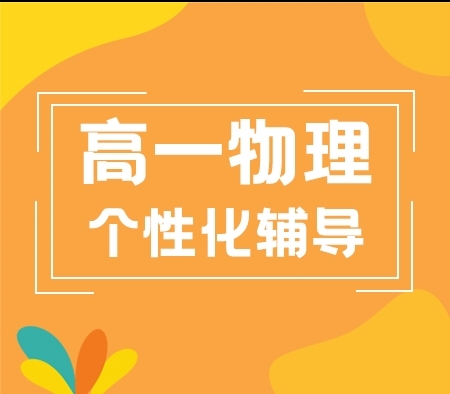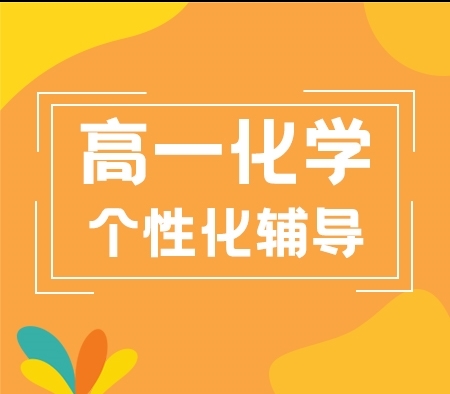省学校联盟2018年普通高等学校招生统一考试冲刺卷英语试题
距离高考还有两周的时间,本文伊顿教育小编为大家整理了省学校联盟2018年普通高等学校招生统一考试冲刺卷英语试题,供大家复习,希望能帮到大家。小编创建了【高中学习交流群 746303724】,群内会不定期分享学习资料,同学们可以加入一起学习哦!参考答案请点击:省学校联盟2018年普通高等学校招生统一考试冲刺卷英语试题答案

本试卷150分, 考试时间120分钟。
第一部分 听力(共两节, 30分)
第一节(共5小题;每小题1. 5 分, 7. 5 分)
听下面5 段对话。每段对话后有一个小题, 从题中所给的A、B、C 三个选项中选出较佳选项, 并标在试卷的相应位置。听完每段对话后, 你都有10 秒钟的时间来回答有关小题和阅读下一小题。每段对话仅读一遍。
1. How will the speakers go for a picnic?
A. By car. B. By bus. C. By bike.
2. What does the woman mean?
A. Dan didn’t follow her.
B. Dan missed the first part.
C. Dan understood what she said.
3. When do the afternoon classes start?
A. At 2:30 pm. B. At 2:00 pm. C. At 1:30 pm.
4. What’s probably the woman?
A. An air hostess. B. A pianist. C. An actress.
5. What are the speakers mainly talking about?
A. An art exhibition. B. A painting. C. An art market.
第二节(共15小题;每小题1. 5 分, 22. 5分)
听下面5段对话或独白。每段对话或独白后有几个小题, 从题中所给的A、B、C 三个选项中选出较佳选项, 并标在试卷的相应位置。听每段对话或独白前, 你将有时间阅读各个小题, 每小题5 秒钟;听完后, 各小题给出5 秒钟的作答时间。每段对话或独白读两遍。
听第6段材料, 回答第6、7题。
6. What can we know about the singer?
A. He is normal and poor. B. He is talented and rich. C. He is talented but poor.
7. What is the singer likely to do?
A. He may collect the news about the songs.
B. He may sing songs others wrote.
C. He may write original songs.
听第7段材料, 回答第8. 9题。
8. Who has a truck?
A. George. B. Brian. C. David.
9. What can’t the speakers probably take with them?
A. The tents. B. The guitar. C. The sleeping bags.
#p#副标题#e#
听第8段材料, 回答第10 至12题。
10. What does the woman think of the moon cake?
A. It’s round and looks like the full moon.
B. It stands for the moon and reunion.
C. People put lots of oil and sugar in it.
11. Where does the conversation probably take place?
A. In a food processing factory. B. In a food store. C. In a hotel.
12. What does the woman get at last?
A. Some Cantonese-style moon cakes.
B. Some Suzhou-style moon cakes.
C. Moon cakes of both styles.
听第9 段材料, 回答第13 至16 题。
13. What do we know about Roger Sabata?
A. He does some shopping for food.
B. He looks for some ways to go on a diet.
C. He does a lot of research on food.
14. What’s the biggest change in eating habits?
A. The amount of eating out. B. The nutrition of food. C. The types of food.
15. What are people’s eating habits nowadays?
A. The old eat out more often.
B. Some parents never eat fast food.
C. Teenagers often eat fast food.
16. What’s people’s drinking preference now?
A. Drinking more milk. B. Drinking more soda. C. Drinking more water.
听第10段材料, 回答第17 至20题。
17. When does the speaker prepare the soil?
A. In spring. B. In summer. C. In winter.
18. Why does the speaker plant small plants instead of seeds?
A. They are cheap. B. They grow quickly. C. They have a good start.
19. How does the speaker help plants develop roots?
A. By watering the plants.
B. By fertilizing the plants.
C. By digging a small hole around them.
20. What do they use to plow the old plants under?
A. A tiller. B. A hook. C. A plowshare.
#p#副标题#e#
第二部分 阅读理解(共两节, 35 分)
第一节(共10小题;每小题2. 5 分, 25 分)
阅读下列短文, 从每题所给的A、B、C和D 四个选项中,选出较佳选项。
A
Over the weekend, the New York Times published a story announcing the death of voice mails, quoting a Vonage spokesperson who said that voice mail use had decreased 8 percent from last October to April of this year. The story positions millennials(千禧一代) as being primarily responsible, as the text-preferring generation has little patience for sitting through a long, droning message.
But there’s another element here: awkwardness. A Moth Story SLAM—winner Kate Greathead once said, “I’m fine when tell a story in front of 400 strangers, but get dry-mouthed when leaving a voice mail.” “In a sense , leaving a voice mail involves everything we fear about public speaking-with the added discomfort of receiving absolute silence from your audience in an email,” said Joshua Clegg, a psychologist at CUNY’s John Jay College of Criminal Justice. The spotlight is on you, which can be panic-inducing enough. But in a more traditional public speaking, at least you get feedback from your audience, which means you get a chance to adapt to that response and potentially recover from any missteps. But it isn’t so with the voice mail.
In an experiment Clegg asked participants to get involved in an impromptu(即兴的) defense of their opinions on a given topic. They were all alone and they were being filmed. “It was like a torture for most of them, and many of them were sweating, fidgeting, looking at the ground, tongue-tied,” he said. “Some of them even had to quit in the middle because it was too difficult for them.”
“Of course , things seem to become less awkward when they are familiar, but the voice mail seems to be on its way out so there is little point in getting good at it. ”he added. There you have it: permission from a scientist to avoid leaving voice mails and await the day when the system dies a natural death.
21. Why don’t millennials like voice mails?
A. Because leaving voice mails usually makes users feel awkward.
B. Because some new means of communication have been invented.
C. Because they think others will hack into the voice mail.
D. Because they are impatient with a long and noisy message.
22. How might Kate Greathead feel when leaving a voice mail according to Paragraph 2?
A. Undistracted.
B. Uncomfortable.
D. Confused.
23. The author explains “awkwardness” when leaving a voice mail mainly by .
A. making a comparison
B. using examples
C. presenting research findings
D. giving a definition
24. What is he author’s opinion on voice mails?
A. Millennials are to blame for the decrease of voice mails.
B. Leaving voice mails is more difficult than public speaking.
C. Voice mails will disappear naturally.
D. The more you are familiar with ones you speak to, the less awkward you’ll feel.
#p#副标题#e#
B
The firemen were back. “Let’s take you there to have a look. ”Sweet black smoke still hung in the air. My hall was covered in black ruins. My kitchen was almost gone :the cooker, the fridge , the washing-machine and the ceiling in pieces by the door. “It could have been worse, ”said the fireman, a phrase heard a lot in the last few days. I thanked him for getting there so quickly. “We’re not the police, you know.” he laughed.
I phoned a friend at work, but her ll-year-old son, Oliver, was there. “There’s been a fire, um, can we come and stay?”
“A fire? Wow, great, see you.”
I arrived with two kids and bags full of smelly clothes by taxi. My friend spent the weekend feeding me and telling me everything would be all right. We went back to the flat to examine the destruction. Everything was covered in a layer of thick black dust.
Several days later, I started to feel very strange. One day I had a flat, the next day I didn’t. I tried to cheer myself up by thinking that I would be getting Christmas gifts—a lot of new shiny kitchen appliances. And I have been told by the insurance company who came and inspected the damage. “It could have been worse, ”they said.
Returning to my “new home” my daughter presented me with a picture she had drawn, a picture of a house on fire. I had to laugh. But as I was laughing I caught that smell again. I just can’t seem to get rid of it. Everywhere I go, I can smell something burning.
25. Where did the author probably stay after the fire?
A. In another flat.
B. At her friend’s home.
C. In a shelter.
D. At a hotel.
26. What does the underlined sentence mean in the first paragraph?
A. The fireman corrected the author’s comment.
B. The fireman was confident of his job.
C. The fireman performed his duty more quickly than the police.
D. The fireman was laughing at the author.
27. According to the passage, which of the following is NOT true?
A. The author was lucky enough that only the kitchen was burned.
B. People tried to cheer the author up after the fire.
C. People would probably send kitchen appliances to the author at Christmas.
D. After the fire, something went wrong with the author’s nose.
#p#副标题#e#
C
Shocking news makes headlines all the time. Examples include South Korea’s presidential scandal and the Pope (教皇) supporting Donald Trump. But the difference between the two is that the former actually happened, while the latter is fake. And although it’s fake, the“Pope supports Trump’ news was shared over 960, 000 times on Facebook. This truly worried the world.
But this was only one of many cases in which people have fallen for inaccurate information. And according to David Rapp, a professor at Northwestern University, US, this has less to do with people’s ignorance (无知) and more to do with how the human brain works.
Rapp found that when people see a piece of news, they tend to quickly “download” the information into their memory because it’s easier than checking it first. “We’re bombarded(轰炸) with tons of information all day. It’s a nightmare to evaluate all of it,” Rapp told Science Daily. And just as first impressions are hard to change, the incorrect information gets stuck in our memory , even if we later read otherwise. W hen the brain tries to pull up information later, the incorrect information is likely to come to mind more easily than the correction. “Just because you can remember what someone said doesn’t make it true,” added Rapp.
But our brains only explain the psychological side of things. The way news spreads on social media has also added to the problem. Earlier studies found that people tend to befriend those who are“like-minded”on social media. Websites like Facebook also use algorithms (程序算法) to figure out preferences of users in order to feed them what they like to see. Both have helped create what researchers called an “echo chamber”—a space where only similar opinions spread around while things that are uncomfortable or challenging are kept outside.
“The danger here is that you increasingly end up not seeing what people who think differently see, and in fact not even knowing that it exists,” Eli Pariser, CEO of Upworthy, a US-based news website, told US radio station NPR.
This is why Rapp suggested that you look critically at information right away, even if it might not fit your ideas.
28. The underlined word “This”in Paragraph 1 refers to .
A. South Korea’s presidential scandal
B. the Pope’s support for Donald Trump
C. the wide spread of inaccurate news through the Internet
D. shocking news attracts readers’ attention
29. According to David Rapp, .
A. our brains remember incorrect information more quickly than correct information
B. people are easily fooled by fake information because its accuracy is hard to check
C. people tend to rely on their first impressions when thinking of information they have received
D. people’s ignorance is the main reason for the wide spread of fake news
30. What can be inferred from Paragraph 4 and 5?
A. News on websites that use algorithms is unreliable.
B. The use of algorithms should be banned to prevent fake news.
C. News on some social media websites is shown based on users’ habits.
D. Only the similar opinions can spread around in the“echo chamber’
#p#副标题#e#
第二节(共5小题;每小题2 分, 10 分)
根据短文内容, 从短文后的选项中选出能填入空白处的较佳选项。选项中有两项为多余选项。
If you’re in a bit of a slump(低迷),it might be due to your brain being a bit bored. 31 . It’s lacking flavor and could be elevated to amazing levels with just a few basic ingredients. Try the following fun and free activities to stimulate your brain in amazing ways.
32. If you’re right-handed, become a lefty for the day. Simply switching the hand you usually use for routine tasks gets your brain thinking in a different way. When brushing your teeth, use the opposite hand. Eating? Use the opposite hand. You can really test yourself and try writing an entire day while using your less frequently used hand.
Talk to yourself. Pick one hour a day to verbally discuss anything and everything with yourself. Describe what you see, what you’re doing or your afternoon plans vocally instead of keeping it locked up in your head. 33 . But talking while thinking is a great brain booster. You might find solutions to problems you’ve been struggling with.
Wash your hair with your eyes closed.. 34 . The reality is that we often rely too heavily on one or two senses, leaving the others behind. Stimulate your brain and close your eyes while washing your hair, eating, or putting on your clothes. Along with being a fun challenge ,your brain is encouraged to use those other senses that have been forgotten about.
Walk on. Just like the body, our brain needs physical exercise too. A steady walk increases blood circulation, which enhances energy production and waste removal. And walking isn’t strenuous and can be done anywhere anytime. 35 .
A. Your senses help your brain make decisions and build connections
B. Whether a person is right-handed or left-handed largely depends on chances
C. Sticking to the same daily routine is like eating just white rice every day for your meals
D. Sure, you might look like totally crazy, which might make you feel embarrassed
E. Use the opposite hand
F. Talking to ourselves is a valuable tool for thought
G. Park a little farther from work or make time to walk around the block at the end of the day
第三部分 语言运用(共两节, 45分)
第一节完形填空(共20小题;每小题1. 5 分, 30分)
阅读下面短文, 从短文后各题所给的A、B、C和D 四个选项中,选出可以填入空白处的较佳选项。
Even though my grandfather, whom I called Papaw, was a 36, my grandma would 37 his work clothes every day. 38 I watched her iron through my childhood, I 39 every old woman in the world did it. But as the years 40 I began to question this. 41. Why on earth did Papaw. 42 his work clothes ironed? Most days, he never 43 anyone but me and maybe a few other farmers. One day when I was about 13, I asked Grandma about it. I wanted to know why she thought it. 44 to invest time and effort to press clothes that were. 45 seen and would be dirty in just a short time. Her reply was as 46 a statement as I have ever heard.
She told me that Papaw was the most47 mar in the world. She loved every. 48 she got to show him off and make the rest of the world 49 that he was hers.
Later that day, I 50 Papaw closely. Surely, he didn’t look that handsome to me. He was short and skinny 51thin
hair on top. I really didn’t see how anyone could consider this man the most handsome one.
So I 52 Grandma about it again a few days later. She gave me a girlish 53, which brightened up her face. “For all these years, he has made me feel beautiful. I want him to feel that 54, too. I iron his clothes every day because he is a man worthy of 55,” Grandma said.
36. A. worker B. farmer C. teacher D. priest
37. A. iron B. wash C. dry D. mend
38. A. Until B. If C. Since D. Although
39. A. wondered B. figured C. ignored D. teased
40. A. passed B. arrived C. approached D. followed
41. A. tradition B. thought C. hobby D. practice
42. A. need B. order C. offer D. wish
43. A. apologized B. served C. saw D. received
44. A. interesting B. wise C. grateful D. necessary
45. A. frequently B. rarely C. mostly D. possibly
46. A. sweet B. polite C. comfortable D. strange
47. A. intelligent B. reliable C. brave D. handsome
48. A. chance B. advice C. choice D. part
49. A. cheerful B. jealous C. amusing D. sensitive
50. A. found B. noticed C. observed D. discovered
51. A. over B. against C. with D. off
52. A. asked B. interviewed C. warned D. reminded
53. A. cry B. message C. smile D. stare
54. A. method B. way C. experience D. manner
55. A. praise B. memory C. kindness D. respect
#p#副标题#e#
第二节(共10小题;每小题1. 5 分, 15分)
阅读下面材料, 在空白处填入适当的内容(1个单词)或括号内单词的正确形式。
The ability to regenerate or recreate missing body parts sounds 56 (much) like part of a science fiction story than reality. 57 researchers are finding evidence that regeneration may be possible someday in the future with improvements in technology. They imagine. 58 (use) 3D-printing to make a kidney for someone in need 59 a replacement. They also talk about possibly using bioelectricity to cause cells to build new tissue and organs.
These ideas and others 60 (discuss) earlier this month at the World Science Festival in New York City. The presentation was called “Forever Young: The Promise of Human Regeneration. ”Scientists talked about the future of regenerative medicine, 61 combines the body’s ability to heal 62 (it) with progress in biomedical engineering. So far, researchers have found that bioelectrical signals can lead to cellular processes in frog tadpoles. In an experiment , a frog regrew one of its 63 (leg) in six months. But researchers say they have a lot more work 64 (do) before the process can be used on human beings. They have to learn which bioelectric signals can influence the 65(form) of which organs.
第四部分 写作 (共两节, 40分)
第一节 应用文写作(15 分)
假定你是新华中学八年级二班的学生李华, 你校的英文版校园网较近正在征求改进意见。请给你校的网站负责人写一封信, 提出你的建议。内容包括:
1. 增加校园生活图片;
2. 加快新闻的更新频率;
3. 增加读书沙龙栏目。
注意:
1. 词数80左右;
2. 可以适当增加细节, 以使行文连贯;
3. 开头和结尾已给出, 不计入总词数。参考词汇:读书沙龙Reading Salon
Dear Sir/Madam ,
I would appreciate it if you could consider my suggestions.
Yours,
Li Hua
第二节 读后续写 (25 分)
阅读下面短文, 根据所给情节进行续写, 使之构成一个完整的故事。
We’re always so busy, aren’t we? Getting groceries, cleaning the house, mowing the law—there’s always something. But in fact, it’s so easy to get caught up in everyday life that we forget how simple it can be to bring cheer to ourselves and others. Giving a smile away takes so little effort and time. Now I’ll tell you a story about “an invisible smile”.
Mr. Dawson was an old man with bad temper, and everyone in the town knew it. Kids knew that they couldn’t go into his yard to pick a delicious apple, even off the ground, because they said old Dawson would come after you with his ball bullet gun.
One Friday, 12-year-old Janet was going to stay all night with her friend Amy. They had to walk by Dawson’s house on the way to Amy’s house, but as they got close, Janet saw him sitting on his front door, so she suggested they cross over to the other side of the street. Like most of the children , she was afraid of the old man because of the stories she’d heard about him.
Amy said not to worry, Mr. Dawson wouldn’t hurt anyone. Still, Janet was growing more nervous with each step closer to the old man’s house. When they got close enough, Dawson looked up, but when he saw it was Amy, a broad smile changed his entire face and he said, “Hello, Miss Amy. I see you’ve got a little friend with you today. ”
Amy smiled back and told him that Janet was staying overnight and they were going to listen to music and play games. Dawson told them that sounded fun, and offered them each a fresh picked apple off his tree. They gladly accepted. Dawson had the best apples in the town.
When they walked out of Dawson’s sight, Janet asked Amy, “Everyone says he’s not friendly at all. How come was he so kind to us?”
Amy explained what happened when she first walked past his house.
注意:
1. 所续写短文的词数应为150 左右;
2. 至少使用5个短文中标有下划线的关键词语;
3. 续写部分分为两段, 每段的开头语已为你写好;
4. 续写完成后, 请用下划线标出你所使用的关键词语。
Paragraph 1:
Mr. Dawson sat in front of his house and looked serious.
Paragraph 2 :
Amy became encouraged and said hello to him.
- 热门课程
- 热门资讯
- 热门资料
- 热门福利
-
 “云程发轫”怎么读?到底有什么含义?看到 “云程发轫”,“轫” 字是不是瞬间让你犹豫读 “rèn” 还是 “rěn”?“云程” 像在说云端的路程,“发轫” 却完全摸不着头脑,连起来既读不顺,也猜不透含义,今天咱们就好好把读音捋顺。 一、“云程发轫”怎么读? “云程发 轫”的读音是yún chéng fā rèn,其中“轫”字较
“云程发轫”怎么读?到底有什么含义?看到 “云程发轫”,“轫” 字是不是瞬间让你犹豫读 “rèn” 还是 “rěn”?“云程” 像在说云端的路程,“发轫” 却完全摸不着头脑,连起来既读不顺,也猜不透含义,今天咱们就好好把读音捋顺。 一、“云程发轫”怎么读? “云程发 轫”的读音是yún chéng fā rèn,其中“轫”字较 -
 英泰一对一数学补习提升效果怎么样?孩子学习进步快吗?相信很多家长都有这个困扰,孩子数学学习总是提不高,基础差难巩固,遇到重难点题型直接卡壳了,那么遇到这种情况选择一对一辅导可以吗?今天小编就来好好给大家讲讲关于一对一辅导的效果,希望能帮助到大家。 一、英泰一对一数学补习提升效果怎么样? 英泰一对一数学补习的效果确实挺明显的,值得一提的就是它的
英泰一对一数学补习提升效果怎么样?孩子学习进步快吗?相信很多家长都有这个困扰,孩子数学学习总是提不高,基础差难巩固,遇到重难点题型直接卡壳了,那么遇到这种情况选择一对一辅导可以吗?今天小编就来好好给大家讲讲关于一对一辅导的效果,希望能帮助到大家。 一、英泰一对一数学补习提升效果怎么样? 英泰一对一数学补习的效果确实挺明显的,值得一提的就是它的 -
 “岳峙渊渟”怎么读?到底有什么含义?看到 “岳峙渊渟”,“峙” 和 “渟” 两个字先让人卡壳了,是读 “zh씓tíng”,还是其他读音?可单看 “岳”“渊”,又像能想到山岳、深潭的画面,猜不透这四个字到底在形容什么,今天咱们就好好把读音捋顺。 一、“岳峙渊渟”怎么读? "岳峙渊渟"的读音是 yuè zhì yuān tín
“岳峙渊渟”怎么读?到底有什么含义?看到 “岳峙渊渟”,“峙” 和 “渟” 两个字先让人卡壳了,是读 “zh씓tíng”,还是其他读音?可单看 “岳”“渊”,又像能想到山岳、深潭的画面,猜不透这四个字到底在形容什么,今天咱们就好好把读音捋顺。 一、“岳峙渊渟”怎么读? "岳峙渊渟"的读音是 yuè zhì yuān tín -
 单招文化课中数学的难度高吗?博大单招能不能提分?想必很多同学一遇到数学就感到头疼,今天小编就来给大家好好讲讲关于单招数学方面的难度,让大家有一定的了解,这样面对考试时心里也有个底。 一、单招文化课中数学的难度高吗? 单招数学的难度比高考简单不少,但也不能完全掉以轻心,单招数学不考那些绕来绕去的难题,主要就看你基础知识点掌握得扎不扎实,考试
单招文化课中数学的难度高吗?博大单招能不能提分?想必很多同学一遇到数学就感到头疼,今天小编就来给大家好好讲讲关于单招数学方面的难度,让大家有一定的了解,这样面对考试时心里也有个底。 一、单招文化课中数学的难度高吗? 单招数学的难度比高考简单不少,但也不能完全掉以轻心,单招数学不考那些绕来绕去的难题,主要就看你基础知识点掌握得扎不扎实,考试
-
 2022高考英语基础知识点!西安伊顿老师带你了解!2022高考英语基础知识点!西安伊顿老师带你了解!高中的英语是一个需要长期积累以及记忆的科目,在高考中只有针对这些知识进行一定的了解和积累,才可以在考试中取得好成绩。针对这种情况,小编请到了西安伊顿老师来给大家总结归纳一下关于高考英语基础知识点的记忆内容,希望对大家有所帮助。对于英语还是需要靠日
2022高考英语基础知识点!西安伊顿老师带你了解!2022高考英语基础知识点!西安伊顿老师带你了解!高中的英语是一个需要长期积累以及记忆的科目,在高考中只有针对这些知识进行一定的了解和积累,才可以在考试中取得好成绩。针对这种情况,小编请到了西安伊顿老师来给大家总结归纳一下关于高考英语基础知识点的记忆内容,希望对大家有所帮助。对于英语还是需要靠日 -
 关于“呐喊与行动那个更重要”的辩论稿写作指导!一直以来,辩论稿的写作都是大家司空见惯的,但是也是很多同学容易忽视的。现在的语文作文考察的范围和广度越来越大,涉及到的文体也越来越多,因此大家在备考语文作文的时候,还是要增加自己的知识面,增加自己的见识。辩论稿大家见得比较多,但是在语言文字上以及结构上的学习,还是非常值得探究的,下面小编给大家分享了一则辩论稿,大家可以练习一下。
关于“呐喊与行动那个更重要”的辩论稿写作指导!一直以来,辩论稿的写作都是大家司空见惯的,但是也是很多同学容易忽视的。现在的语文作文考察的范围和广度越来越大,涉及到的文体也越来越多,因此大家在备考语文作文的时候,还是要增加自己的知识面,增加自己的见识。辩论稿大家见得比较多,但是在语言文字上以及结构上的学习,还是非常值得探究的,下面小编给大家分享了一则辩论稿,大家可以练习一下。 -
 “直播带货”有关的作文写作指导!立意和审题指导!高中的作文写作更多的是来自于社会现象的思考,或者生活的思考,所以高中的同学在写作文的时候可以从生活细节入手,寻找素材,因为任何题目都是取之于生活,进而引发的一系列的思考行为。本次伊顿教育小编给大家分享的这篇作文也是一个社会现象的评述,材料内容是关于“直播带货”,这个大家都是不陌生的,而且有的同学也是参与者,所以对于此也是非常的熟悉的。下面我们可以来看看这篇作文写作的指导。
“直播带货”有关的作文写作指导!立意和审题指导!高中的作文写作更多的是来自于社会现象的思考,或者生活的思考,所以高中的同学在写作文的时候可以从生活细节入手,寻找素材,因为任何题目都是取之于生活,进而引发的一系列的思考行为。本次伊顿教育小编给大家分享的这篇作文也是一个社会现象的评述,材料内容是关于“直播带货”,这个大家都是不陌生的,而且有的同学也是参与者,所以对于此也是非常的熟悉的。下面我们可以来看看这篇作文写作的指导。 -
 2021年9月山水联盟高三开学联考数学试卷及答案(原版)!2021年9月山水联盟高三开学联考已经结束,伊顿教育小编给大家整理了本次联考的数学试卷以及答案,各位相关的小伙伴可以参考一下。对于高三的学习,小编建议大家在每一次的考试之后,都能够仔细的分析一下自己的失分点,对于自己没有掌握的知识点可以尽早的掌握。
2021年9月山水联盟高三开学联考数学试卷及答案(原版)!2021年9月山水联盟高三开学联考已经结束,伊顿教育小编给大家整理了本次联考的数学试卷以及答案,各位相关的小伙伴可以参考一下。对于高三的学习,小编建议大家在每一次的考试之后,都能够仔细的分析一下自己的失分点,对于自己没有掌握的知识点可以尽早的掌握。


















 All right reserved
All right reserved
